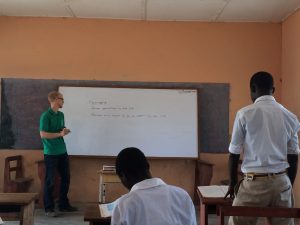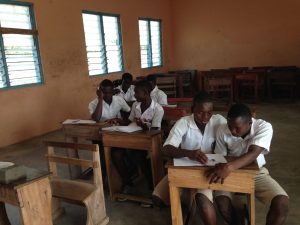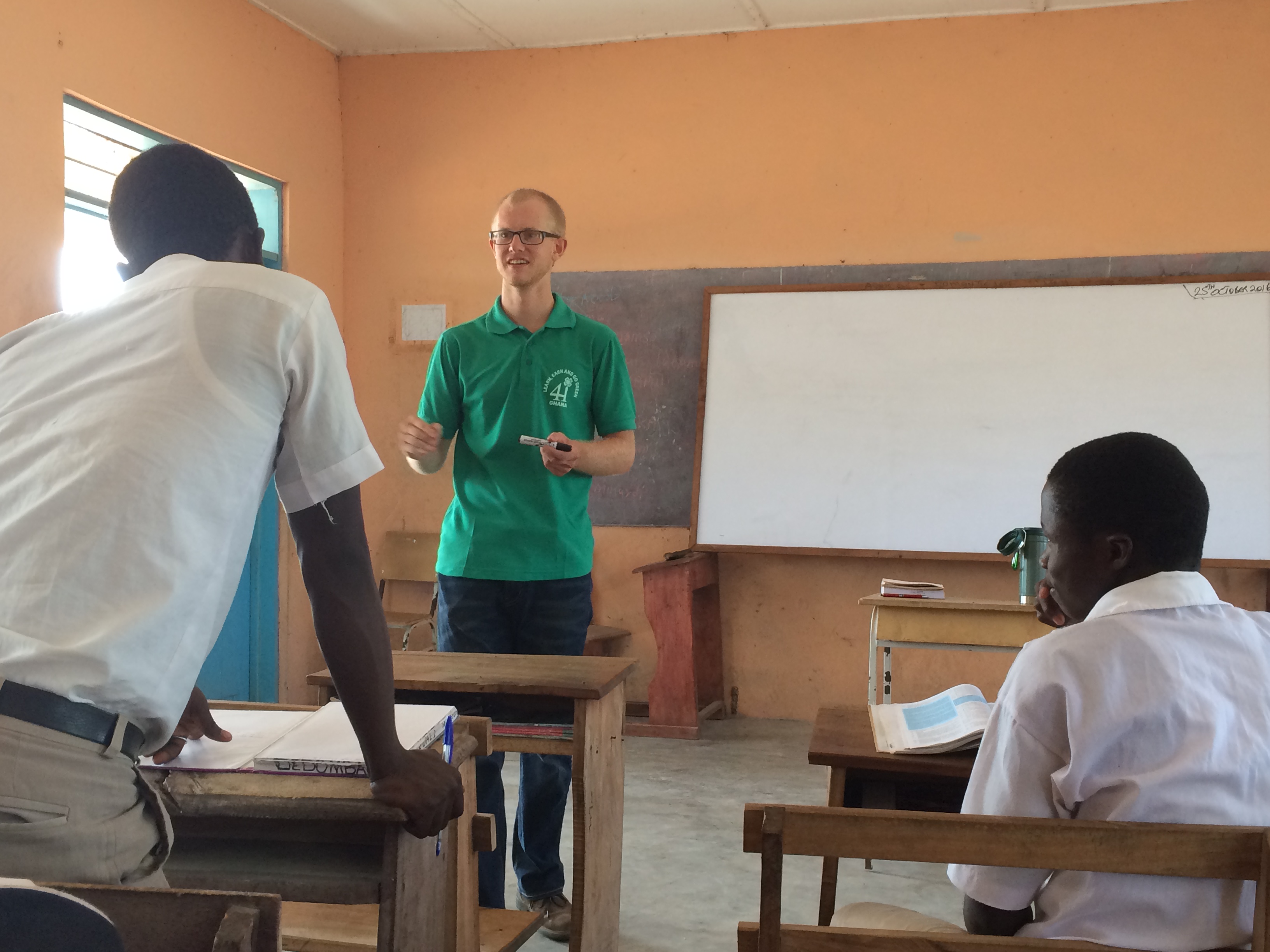I suppose one could make a case that teaching is in my genes. My mother taught high school English for 38 years, my brother has lectured at the university level and even my Grandma Rippke was a teacher. Despite my bloodlines, teaching was the activity that I looked forward to the least before coming to Ghana. I was more interested in working with farmers and implementing projects through a 4-H club—teaching seemed like a much less exciting prospect. In a few short months, my mindset has been completely turned around.
In preparation for the school year, my co-teacher Mark provided me with a digital copy of the General Agriculture syllabus for the WASSCE, the final exam for students in West Africa. He also provided me with a General Agriculture textbook that was geared towards the exam. “You won’t get through the syllabus,” he said, “so make sure that whatever you teach, you teach it well.” I was overwhelmed by the amount of content in the syllabus and the 650-page textbook. Secondary school in Ghana only lasts three years, providing a brief amount of time to cover a ton of content. I jotted down notes on which topics I wanted to prioritize, knowing that my priorities and timeline could shift drastically once I actually got into the classroom.
Prior to teaching, Mark informed me that I was responsible for 23 Agriculture students—17 third years and 6 second years—and that the first year students would arrive by the start of the second term in January. Buipe SHS was opened in 2011, but Agriculture was only offered starting in 2014, hence the small number of students. Other students specialize in Business, General Arts, or Home Economics. I spent the first week getting to know my students, which provided some fun conversations. I had them guess my age and received responses ranging from 20 to 30 years old, and many thought I was married with children. I also familiarized myself with the topics they had already covered which helped guide my planning.
6 second years—and that the first year students would arrive by the start of the second term in January. Buipe SHS was opened in 2011, but Agriculture was only offered starting in 2014, hence the small number of students. Other students specialize in Business, General Arts, or Home Economics. I spent the first week getting to know my students, which provided some fun conversations. I had them guess my age and received responses ranging from 20 to 30 years old, and many thought I was married with children. I also familiarized myself with the topics they had already covered which helped guide my planning.
In time, I no longer felt overwhelmed as I chipped away at the mountainous WASSCE syllabus. While my initial teaching style was fairly reserved, I’ve managed to try new methods with positive results. Many teachers at my school use “chalk and talk” lecturing methods and there’s nothing wrong with that; they’re teaching how they learned to teach. However, by using more engaging strategies, I’ve gotten students to open up and contribute more in class. It’s been incredibly rewarding.
One of the first topics I covered with the third year students was record keeping and accounting. After introducing the idea of a profit and loss statement and providing an example, I had the class create one together. I asked, “What did our ‘business’ purchase?” and was greeted by a chorus of responses:
“Chickens! 2000 cedis!”
“Feed! 200 cedis!”
“Fertilizer! 100 cedis!”
And so on. Then, I asked what our “business” sold to generate income, and received a similar barrage of suggestions. After adding up the expenses and sources of income, many of the students became wide-eyed. I posed a question to the students: was this a good year for our business? Heads shook vigorously. A student raised his hand and pointed out that our imaginary farm business was operating at a loss, which prompted a discussion about good business practices. Student generated content has worked well with the second years, too. Recently, we discussed crop rotation and I allowed them to choose four crops and draw up their own crop rotation plan on the board. By allowing students to contribute and take ownership of their learning, a deeper understanding is made that goes beyond writing and explanation.

In addition to incorporating student input in classroom activities, I’ve also been promoting discussion between students to help them process their learning. As I continue to grow as a teacher and become more comfortable in the classroom, I hope to reinforce in my students the notion that learning is not a passive occurrence, but an intentional act. When students take ownership of their education, they take ownership of their future, which should be the goal of every teacher regardless of country, subject or level of education.
Mark Rippke is a Horticulture graduate from Iowa State University. Before becoming an AgriCorps Fellow Mark served on Iowa’s 4-H State Council.


